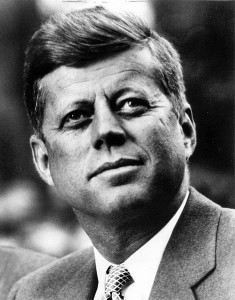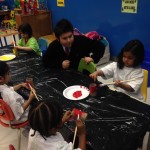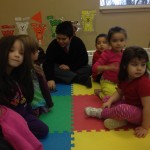I landed in Montreal 54 days, 10 hours and … minutes from today. I climbed off my air Canada flight not exactly sure what to expect besides seeing pictures of gigantic moose and cars buried in 50 feet deep snow. But other then that, I expected a city filled with people with saying “eh.” What greeted me was a beautiful city with a vibrant atmosphere that I still can’t explain, filled with some amazing people. 54 days…it is incredible to think how many laughs have been shared, smiles exchanged and unforgettable memories have been made in such a short time.
When Canadians think of South Africa they think of mud huts and starving children, but it’s very far from that! We have huge cities and cars – that’s probably why my first encounters with LCC students went something like this:
- “Oh you’re from Africa – then why are you white?”
- “Is South Africa even a country? Like where is that”…amazes me since its all in the name!
- “What’s your accent British, Australian?”…try South African accent…“Oh yeah, but is that British or Australian”
During my time at LCC, I’ve been given numerous opportunities. The first opportunity I was given was to experience freezing weather on Duke of Ed silver trip. After going on the Duke of Ed trip, I can safely say that I will never complain about being cold back home in South Africa ever again. This was my first experience of camping in the snow…. I don’t think my toes will ever recover. To all those who conquered it with me we are true survivors.
I was given the opportunity to go with the LCC debating team to a tournament at Carlton University. This is where my South African accent proved to be quite a commodity. At Carlton, I believe we spent more time debating about how the actual debate (who won extra) than actually debating. I want to thank Mr. George and the LCC debaters who suited up with such swag for a great weekend.
LCC it’s been a crazy couple of weeks. I’ve built a robot that actually moves! Props to my robotics class for the best African jokes. I was able to learn a little French by the best and one and only M. Sigouin. I learned how to create skits using Tibetan throat singing in drama and witness Mr. Shefler blow up many things including Halloween pumpkins. LCC, thank you for making me excited for school every Monday morning. I don’t think I’m ever going to say that again.
I’ve been able to try out, play and watch sports that I would never be able to in South Africa. I tried playing on the Juvenile Basketball team – it is a miracle I didn’t start kicking the ball considering how little I actually knew about the game. I got to be the mascot for my amazing midget volleyball team. I also was able to watch some skilled players play football and ice hockey.
I’m going to miss the African jokes, your ridiculous attempts at imitating my accent but mostly, I’m going to miss your chocolate milk vending machines.
I’m honoured and proud to say that I was an exchange student at LCC. Besides LCC being older then my entire country, the staff and facilities are amazing. I don’t study under a tree on the ground in South Africa but my school certainly doesn’t have its very own rink.
I want to thank everyone who played a part in my exchange. Thank you to my host family, Mr. Shannon, Mr. Neal and Ms. Shadley for graciously welcoming me into your school and country. I could never imagine that I would feel so at home at school on the other side of the world. Its true that every good thing needs to come to an end but this isn’t a goodbye. I will be back.
Just like this LCC pin pinned to my blazer, all of you and our memories will always be a pinned to my heart. Goodbye and thank you LCC. – Carmen Debeer (exchange student from St. Stithians Girls College, South Africa)

![photo[5]](http://wearelcc.ca/wp-content/uploads/2013/11/photo5-300x200.jpg)


